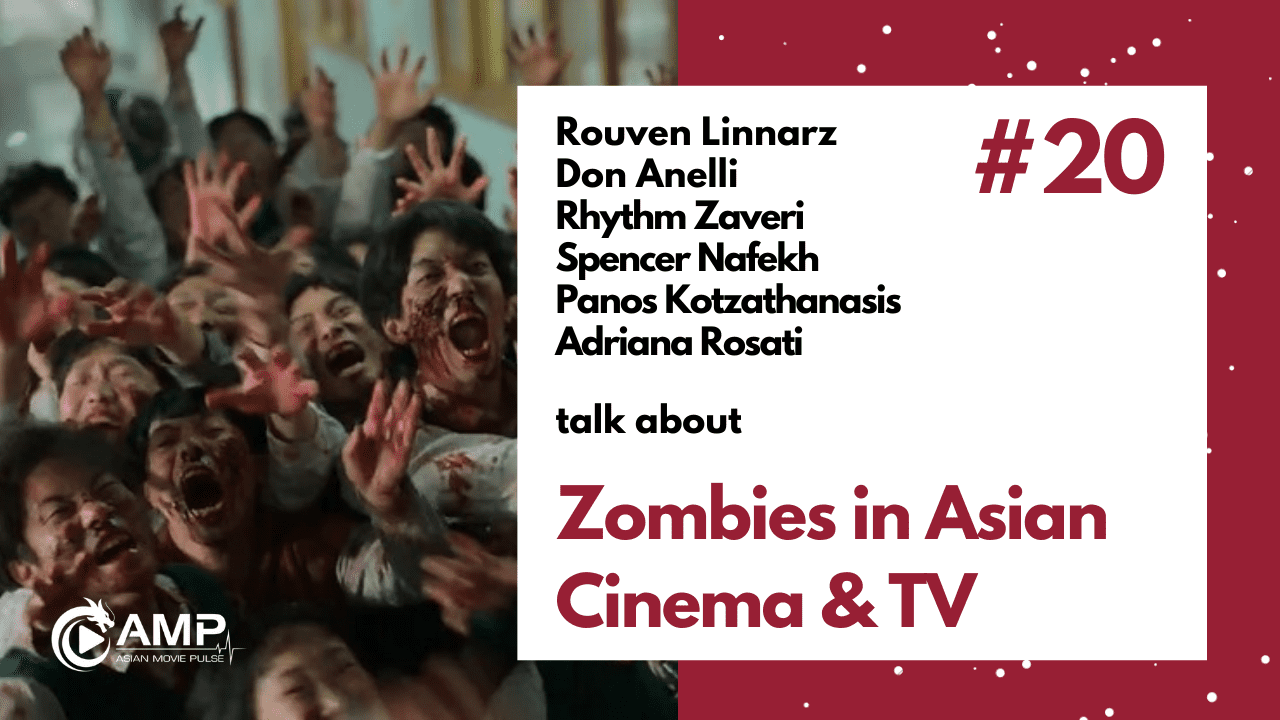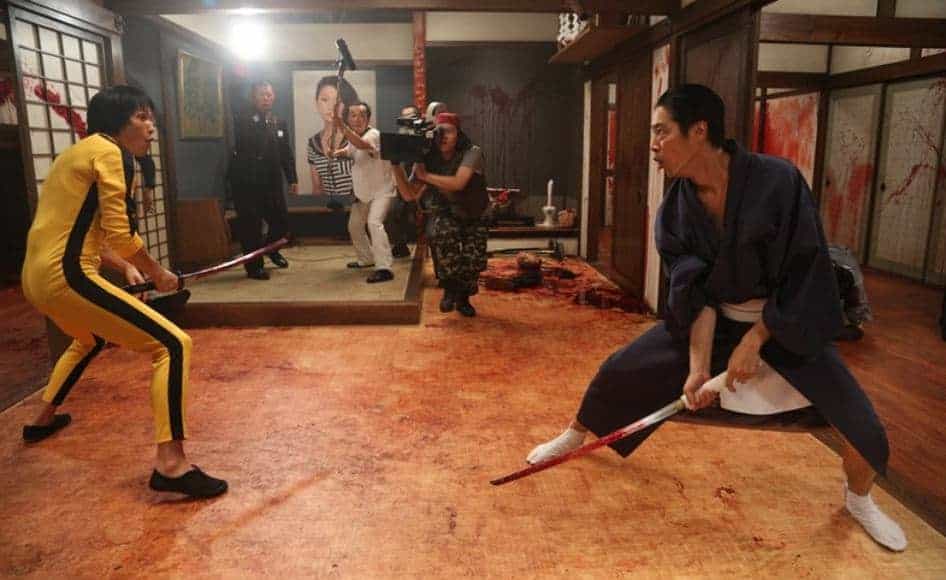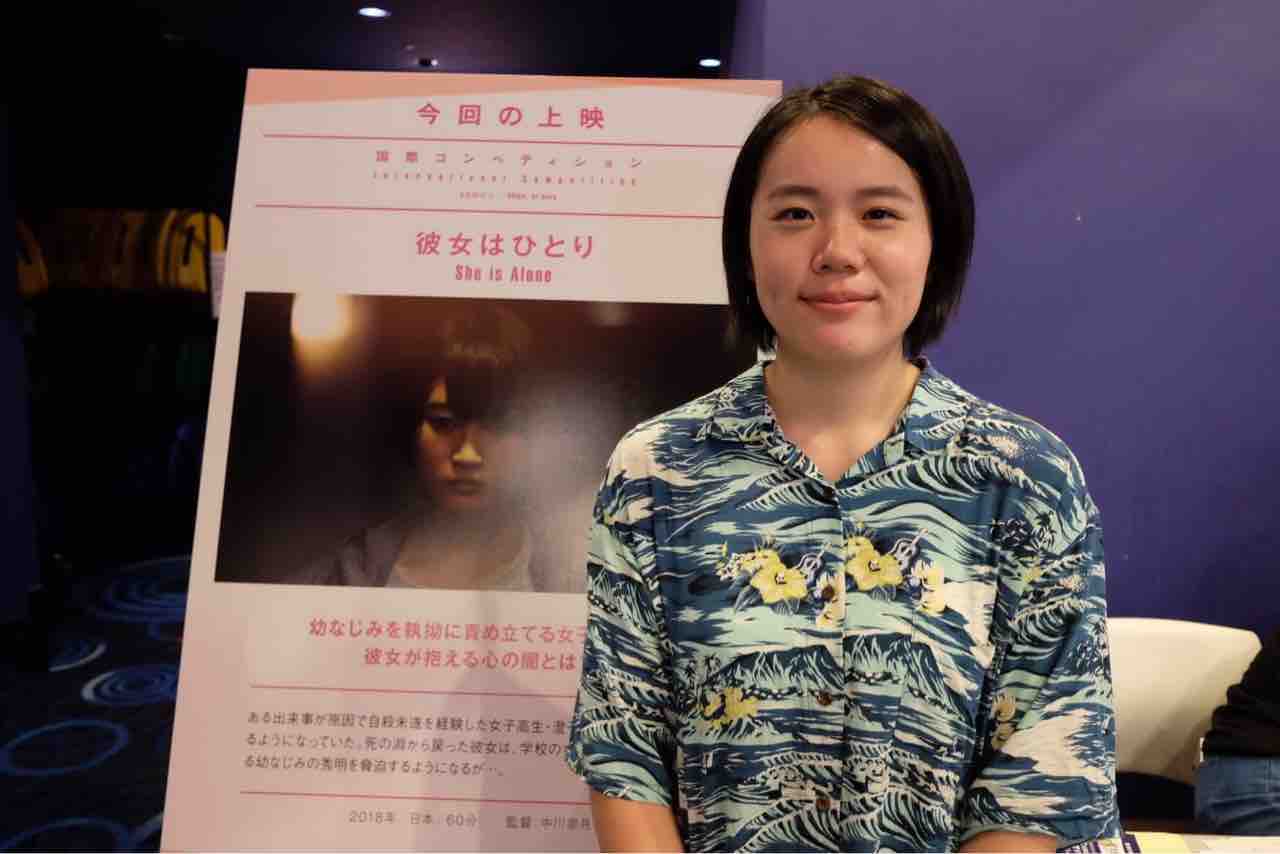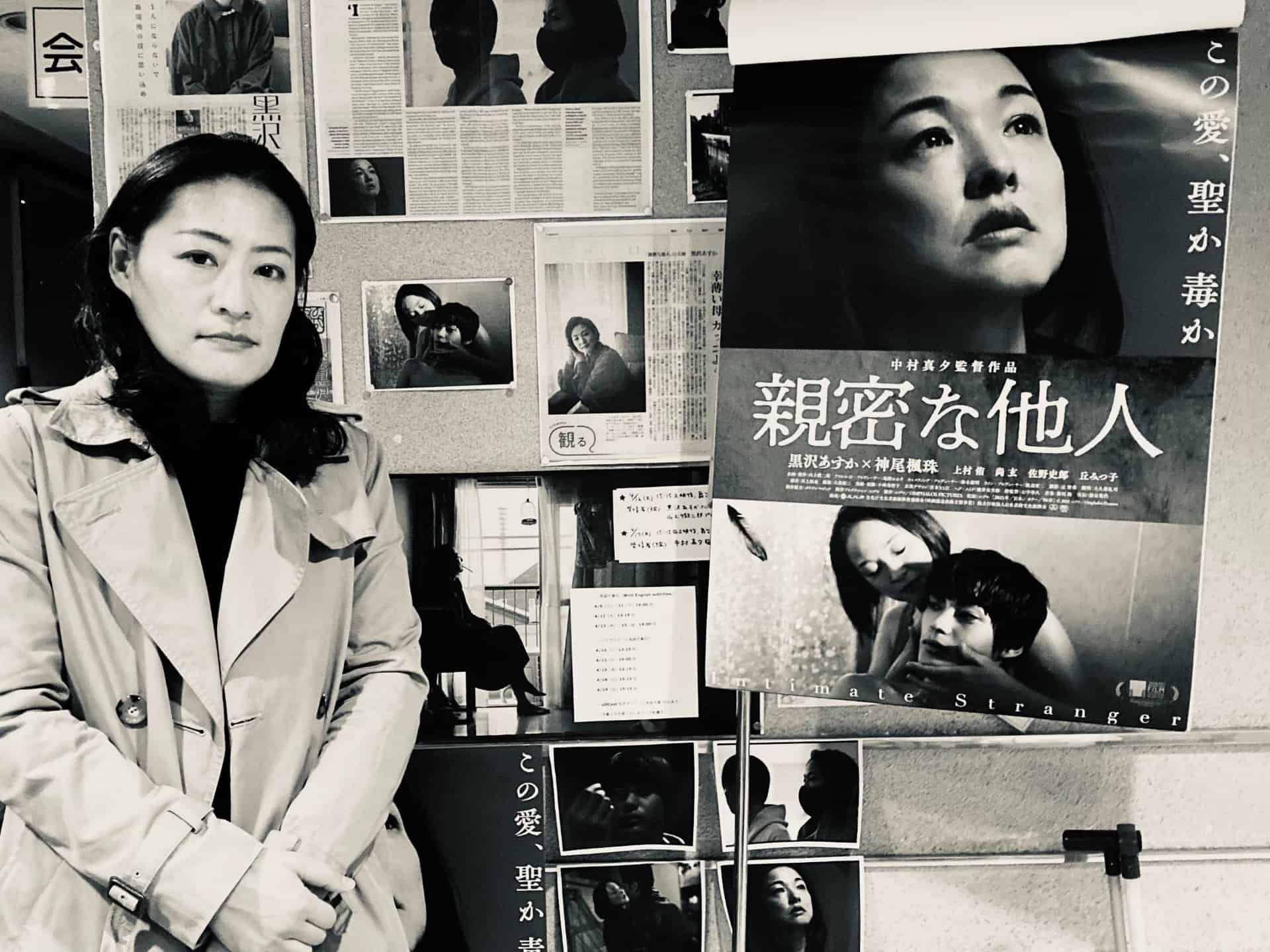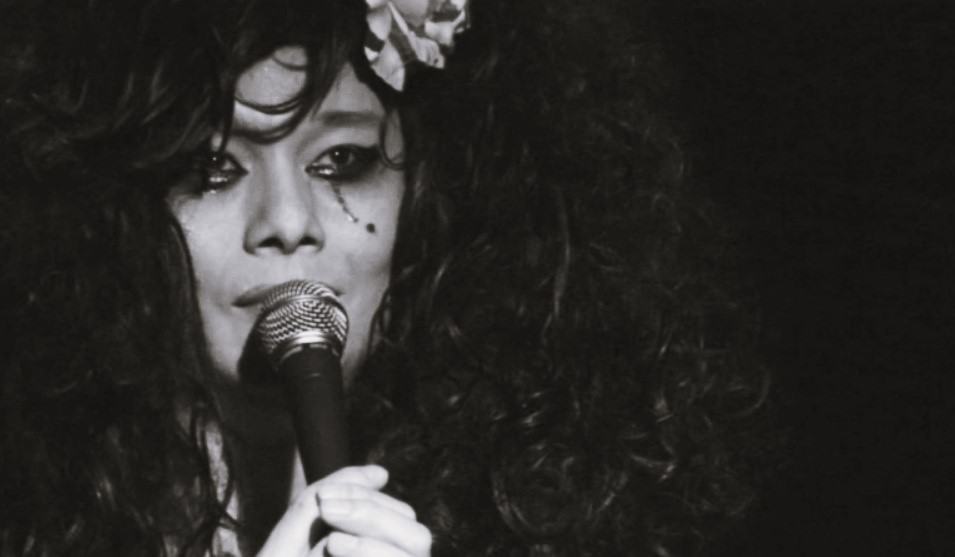Heiward Mak studied Creative Media at the City University of Hong Kong. She entered the movie industry early, and at the age of 24, she directed her debut film “High Noon” (2008) portraying the new generation of Hong Kong youths. With highly successful “Mad World” (2016) she debuted as a producer, sharing her wealth of experience with a debuting director. She was shooting short films, full features as well as many commercials and music videos. In addition, she authored scripts.
On the occasion of “Fagara”, her sixth feature movie, screening at the Five Flavours Asian Film Festival, we talk to her about the importance of understanding your crew, generational conflicts, family ties, her cooperation with Ann Hui, and how the recent events in Hong Kong are influencing families. Focused, attentive and analytical, she provides an in-depth look at her characters.

You are a director, writer, editor, as well as a producer. How those roles differ for you?
I am used to the atmosphere of multitasking in the Hong Kong film industry. This is how it is with independent movies, you need to make the most of a budget. As to the different roles I take, you can describe it with the line from my ”Fagara” script: “It's not about I want it or I don't want it”. It is about asking myself “Can I do it, can I make it?”. If I can contribute to that particular production, I'll take any role. It also comes from experience. After my directorial debut, “High Noon”, I was writing a script for “Love in a Puff”, at the same time planning another project, my second film “Ex”. Then I made the TV drama “Beside(s) Happiness”, which screened at Singapore International Film Festival, and for which I won the award for the best director. All that happened over a short period. During those 2 years, I learned a lot. I also observed miscommunications between team members. Taking different positions allows me to get insight, what are the pros and cons, and the difficulties of this particular task. As a result, I can communicate with my crew with empathy, I can understand what they need and why they want to do something or why they can't do something. It is important to realize that making movies is not about one person, but teamwork, cooperation, developing negotiation strategies. So all these roles enable me to understand better how people communicate and connect; it helps me grow.
So you have an empathetic approach to your cooperation with team members?
I know what I want for production, how to manage actors and actresses, how to manage a team, I know what I want as a director. But you shouldn't always put yourself at the center. When you are debating your vision, the point is not to do it from the perspective of “I”, but to explain where it comes from. For example, discussing the role with actors and actresses, it is not about “I want this character to be like that”, but “This character is like that because…” Also when you work with creative people, you need to leave them some space for independence. Once again, it is important how to connect with each other, how to communicate, and then we know we are going together in the right direction. So it all goes back to taking different roles for better understanding.
Was there any particular film, which inspired you to become a filmmaker?
Lots of movies inspired me during my school times, and one of the most important was “Made in Hong Kong” by Fruit Chan. Also “Nomad”, the film by my mentor Patrick Tam, and “Boat People” by Ann Hui. These tiles were a revelation for me, not only in terms of filmmaking but also storytelling. Besides, I was inspired by “Trainspotting” and I loved films of Gus Van Sant. The way of thinking of these filmmakers, their approach, was so different. Actually, before pursuing filmmaking, I wanted to become a children's book illustrator, but I gave it up because my tutor told me that my works are too dark and cruel, not suitable for children. Yet, on the other hand, there are many books and stories for kids, which are quite cruel and scary.
Fairy tales… for example, Grimms' fairy tales, are so dark.
Yes, indeed. I don't really know why I gave up and listened to my tutor at that time. But there's this issue with authorities… When I was a newcomer in the film industry, I was often told: “Don't do that, no one will watch it”, “No one will appreciate it”. I heard a lot of this kind of advice. Even after my successful debut “High Noon” I got a lot of strange comments, which were quite frustrating and confusing, things like: “Don't do something very independent again.”
How you switched from illustrations to filmmaking?
As I moved on from studying design, I started making art installations and got interested in the video image. I did a lot of art projects and art direction things. I learned about stop motion animation and was exploring moving images area. And slowly I came to the stage, at which I wanted to tell a story, and I wanted to do it with connection with an image, I wanted to work with actors and actresses, and to do live-action projects. I have already had some experience with managing artists, so I wasn't afraid of dealing with actors and actresses. I decided that I can do it. I enjoyed the control I had over the projects. After I got to the industry, I lost some control, as I was getting a lot of those comments I mentioned: “Don't do this and don't do that”.
Good that you didn't get discouraged, like with illustrations…
It reminds me of the scene “Fagara”, in which sisters are drunk, and they speak to the cockroach they caught in a glass as if they talked with their father. They experienced the trauma of not having a proper mentor guiding them through life. One of them yields “I am polite, you told me to be polite, but why people always complain about me”. And the second sister says: “Father, you asked me to work hard, but I am still losing. What shall I do?” Now they are adults and they expect inputs, which won't be the truisms like “Work harder, or “Behave well”. These girls are signaling “We experience problems, the advice you gave us hasn't helped us”. Also, their father wasn't there for them during their whole childhood.
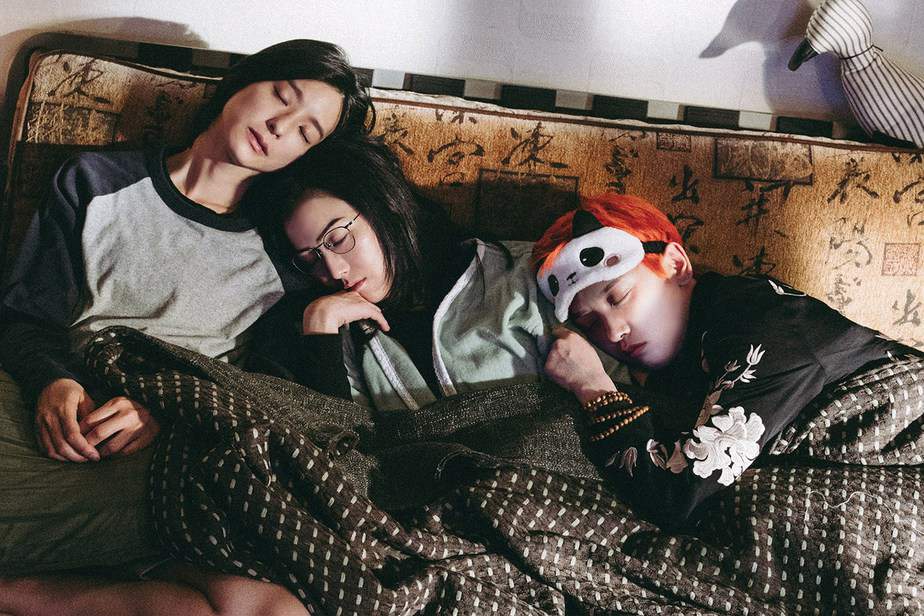
As we came to “Fagara”, I was surprised to see that that there are no resentments between sisters when they met. But it was a nice surprise that this type of connection between them is possible.
Audience may expect conflict between these girls. But the conflict is not about them. They are innocent, we don't decide on being born. So, how could they blame each other for anything. It is more about generational tensions, the relations between the old and the young generation. Acacia, played by Sammi Cheng, is focused on her own feelings and her rage about this whole situation. The problem is not how many daughters her father had, but the fact he hurt all the sisters. Acacia realizes she and her father were like strangers. They were living together, he raised her, but she doesn't know what he was doing when he wasn't around and what were his connections with his surroundings. So she is trying to figure it out, being at his restaurant, meeting his friends and employees. She picks up scratches of information to understand what kind of man he really was and why she is stuck at this particular stage of her life. We can make the assumption, if the father didn't die, these girls wouldn't know about each other, and Acacia wouldn't be able to forgive him till the rest of his life. So she wouldn't be able to move on.
The father for me, is the most enigmatic character. On the one hand, he seems very immature and unable to take responsibility for other people. But on the other, we discover his better side, for example of someone helping his employees. What's your view on this character?
He is someone we can't forgive. If I was one of the sisters, I wouldn't forgive him. Though he is not plain bad, he didn't commit any horrendous crimes, he is just a guy who makes mistakes, and he tried to compensate for his absence in daughters' life. Maybe he would deserve forgiveness if he was able to admit his faults. A hotpot restaurant is this kind of place, where you gather people together. By running his restaurant, he was building a substitute of the family for himself. He loved this atmosphere of having others around him, loved festivals, loves joining big groups of people. But in fact, he was very lonely and unable to get warmness and respect from his daughters. He felt guilty and didn't know how to show his emotions. The other person unable to express her love for her daughter is the Taiwanese mother, Branch's mother. She is also not good at speaking about her feelings…
And not supportive…
But actually, she is appreciating Branch. Between the lines, you can find love, which is hidden under all those spiteful words and discouragement. We observe similar dynamics in the relation between Cherry and her grandmother. You can look at this phenomenon in connection with a Chinese family, where you will be appreciated, but after getting discouragement first. This is how many families work, how parents from the older generation treat youngsters. I see it as a very bad habit, discouraging your kids, while you should express your love and support them with all your heart. It was similar with Acacia and her father. For example when she was moving out, what he wanted to say was: “I don't want you to go, I want you to stay,” but what he said was something spiteful.

He is unable to connect with his daughter…
There is a lot of miscommunication and broken connections between the three couples of characters, Acacia and the father, Branch and her mother and Cherry and her grandma. Every girl represents a different generation, Acacia is the oldest, while Cherry is a millennial. Actually, I wanted to point out how we form our relationships with people in a different way, also in connection with our family history, in this case how the broken family affects us. Relationship with the father represents the past, as Acacia needs to relieve the past. The relationship between Branch and her mother is about the present, and about rebuilding their current mother-daughter relation, while Cherry and her grandmother's relationship represents the future. They share a beautiful bond, but they are going to lose each other in the future, and the question is how they are going to face it. When someone dies, this person is not truly leaving the world, because it's more like moving from a house into our hearts. Grandmother doesn't want to be a burden because of her age, but Cherry in contrary to the common opinion about a young generation being unable to take responsibility is ready to handle them and to take care of herself as well as her grandma.
And what about Acacia?
She is in the process of rebuilding the way she perceived her relationship with her father, and as a result, rebuilding herself. She is discovering why she lives as she does, why she keeps a distance from her ex-boyfriend played by Andy Lau, and keeping distance from Choi played by Richie Jen. She keeps distance because she has a very bad impression of men because of the shadow cast by her father. But actually, the character of Andy Lau is trying to explain to her “your father is your father, you are yourself, you have to look at your life, our relationship is not your father's and your mother's relationship, and your present life shouldn't be affected by history”. He also says to Acacia that all he knows is that her father loved her in his own way.
Could you tell something about Acacia's flashback scenes, as they seem very important in her process of self-discovery?
The flashbacks are always shown from a certain perspective, with Acacia looking back at what her father did. It is like we had this third angle to look at ourselves. We know that time is moving forward, it is linear, but it goes in a spiral way. When we are arguing, this argument stays frozen at that certain point of time. If we hurt someone, or even ourselves, this negative energy would be there forever. Acacia can't interrupt the flashbacks she is witnessing in her imagination. In the end, during a festival scene of a dragon dance, she can finally do it. It may seem she is doing it for her father, but in fact she is doing it for herself, because Acacia needs to heal herself. Then the journey is complete, her mission is complete. It is like playing a video game, in which we try to interrupt a memory, interrupt some pattern to finally find an exit. We unlock the memory and may walk past it.
Do the tensions you show in “Fagara” represent some kind of generational change and generational conflict in modern Hong Kong society?
It has been a tough year. We are changing, I would say from heaven to hell. The connection between the older and the new generation within families is very fragile and cracked. It is heartbreaking to observe. After the past 5–6 months, people discovered this fragility and tensions. But on the streets, you can find your connection to society. You encounter people representing different generations, but they're sharing the same vision, the same mindset, and they rely on each other, being part of the same movement. I think there is a connection, this forms the connection. We are the one, we are determined together. It is like a family. And this is a very civilized idea. There was even a Chinese philosopher writing about it, he was discussing his concept of family as opposed to the traditionally-understood family based on ties of blood. According to him, we don't need to have a biological relationship to love each other and to form strong bonds. I think society is moving forward and being more civilized in this way.
Speaking about the changes over the past half a year, you mean the protest happening in Hong Kong*. So political issues seem to be influencing families…
I think so. Many kids, a lot of my students, are having arguments with their parents. They complain their mothers and fathers don't understand what and why they're trying to achieve. Young people are fighting for freedom of speech and freedom of the future. But their parents, or the older generation, they just hope everything will be the same, they want to maintain the old stability, without any disturbing changes. They just want to go to work as they did, they want their kids to go to school, they want to live as before as if nothing has happened. But the truth is this is no longer the same life. Especially after the violent actions of police forces, making all the citizens victims. Not to mention the usage of tear gas, which makes whole areas contaminated and is harmful to health. So when people find the feeling of belonging outside, on the streets, they form a union with strangers, and those strangers are becoming a family. This is what youngsters think at the moment. But actually, it is not only about youngsters or middle classes. Sometimes people from the outside think: “Students are poor, so they are fighting ”, but the truth is there are also lawyers and doctors and bankers involved in this movement. There are also people over 50 or elders, with grey and silver hair, standing in the front lines to protect these kids. Yet at home, these kids are not finding understanding and support for their actions. I've heard a lot of stories about young people, who are not allowed to return home. When they come back from protests, doors are locked. Parents don't want them to go back.
It is heartbreaking to hear.
It an abandonment. Abandonment is not always about leaving, about the physical act of going away. You can also abandon mentally and spiritually. The whole generation is abandoned by society, by the parents, by their whole generation. Though it is not really about the age range. It is about the mindset. It is about whether you are caring for the future and the next generation or not. Or if you care about the core values of Hong Kong people, the values of being free to speak and act It is also the fight for the healthcare for elders, and basic healthcare, fight for the right to the protection and help from the government after retirement. It doesn't matter that right now we are not going to benefit from it. We must fight for the future and future generations. We can get the point why those parents don't identify with what their kids are fighting for; they just don't realize there's any problem, but it will inevitably arise in 30 years. Also, if there is no way to voice important matters out, there is a problem. And the government is not resolving the burning social issues. So this is what people involved in movement are worried about, the future. If we are raising the issues, but in a reply, our voice is silenced and repressed, that is the problem.
There's no politics in “Fagara”, but the three sisters who find a connection, and form a family, have different backgrounds. One is from mainland China, one is from Hong Kong, and one is from Taiwan. So it seems to be a kind of metaphor. Was your intention to put it as a symbol?
It is an adaptation of the novel, so this is a part of the original set-up. However, I made changes, the literary prototype is a mellow love story in the form of letters, which the main character writes to someone she loves. For me, it is more the tale of three sisters than cities, and as I told before, I place the focus on the generational differences and conflicts, not the differences and conflicts between the cities. Also at the end of the story, it is not like that they can form one family. The eldest sister looks at the mirror, in which they are reflected sitting in the circle by the table enjoying the hot pot together. It is like fantasy, right? It is only a fantasy about having a family, which won't happen in reality. Sammy's character is closing that door, closing the restaurant, to discover her own self, she has begun the process of healing what is broken in her. She is neither with Andy, nor with Richie, she is driving on her own, which is also important plot-wise. The question I also pose with the movie is: “When are we becoming adults?”. And it is not about age, but the ability to leave home, both physically and mentally. Some people may move out physically, but they have never matured mentally. In the end, audience can imagine these sisters would never run their father's hot pot restaurant together, because they have their own separate lives. For Branch and Cherry, father was only a distant figure. They have their families, people who has always been by their side, somewhere else.
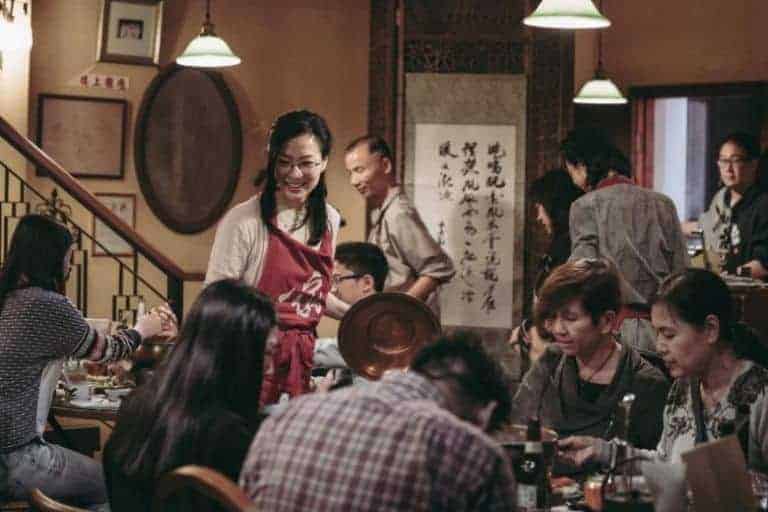
I would like to ask you about the international title. “Fagara” is the word for the pepper. And there is the scene in the movie where sisters ease the tooth pain with pepper. I was wondering if you are trying to tell that sometimes you need painful experiences to move on?
When we are eating spicy food or eating pepper, we sidetrack, we deceive our senses. In our tongue, we don't have receptors for spiciness. Actually, what we perceive as a nice sensation of spiciness is the feeling of pain. The sense of pain is not a taste. That is a good symbol for the whole story, that we may sidetrack our emotions with something or we cover our sadness and trauma in order not to face it.
To wrap up, how was your cooperation with Ann Hui?
I got a lot of freedom, also when it comes to script. In the original novel, we don't have the grandmother, we don't have the Taiwanese mother, we don't have the characters of Andy and Richie, I added all of them and made other changes. I was completely free to explore the possibilities of transferring this story to the screen. Ann Hui is an excellent mentor. She is encouraging, and you just trust her. Though sometimes she seemed a bit annoyed with me being too logical and rational. Even if I am handling something emotional, I believe in statistics, I believe in research and building a solid structure, I believe in a very atomized calculation. When I'm rational, very logical, and I do things in a logical way, I feel secure. Ann would comment at times “Maybe you can relax a bit.” And then we were having a nice conversation. In most of the cases, she was just letting me go my way. We understood well our cooperation. And of course, I owe her my involvement in this project. We have met just a couple of times before, and haven't discussed anything. But she noticed my work and suggested I can do this adaptation. I am so grateful to her for remembering me, of course apart from being grateful for her contribution to the film industry. In these terms, I am also grateful to my mentor Patrick Tam, who taught me how to be precise and accurate.




